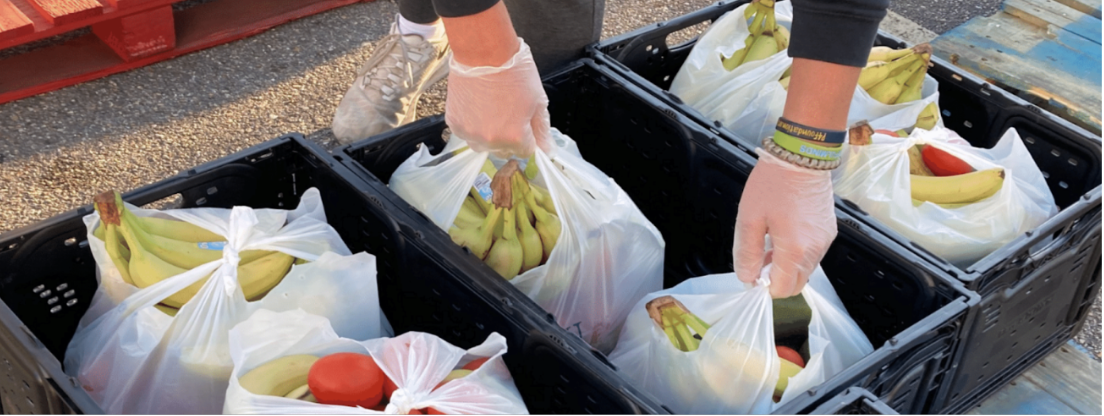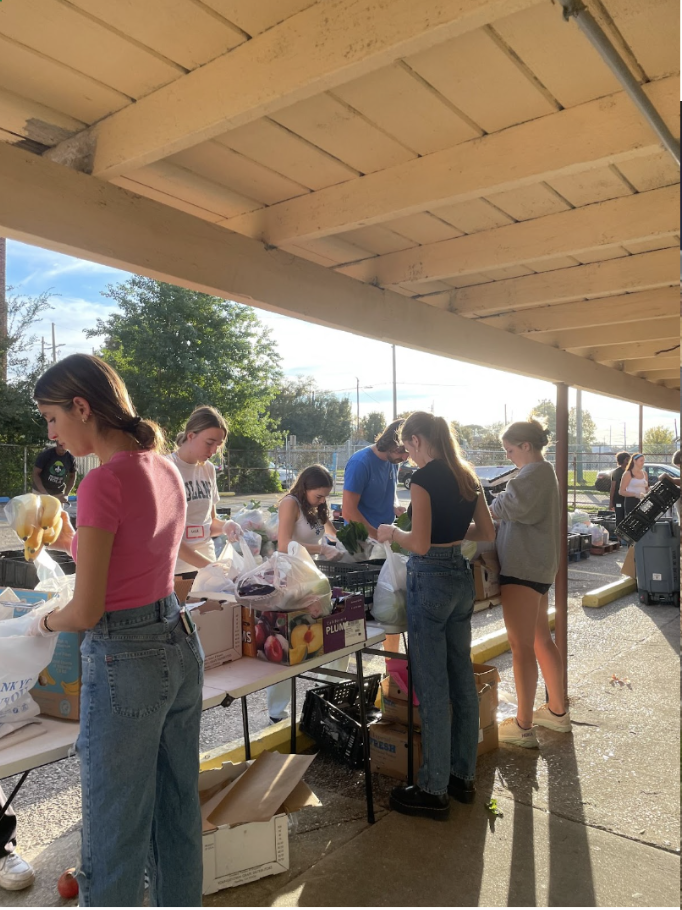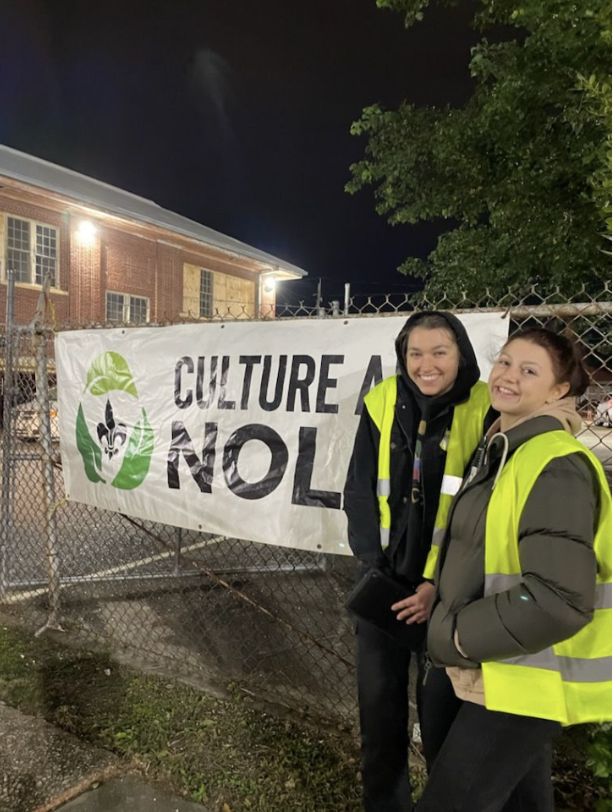By: Olivia Hochman, Katherine Joiner, Jenny King, and Candelaria Reyes
Food insecurity is a widespread issue in the United States and is unfortunately very prevalent in New Orleans. A person is considered food insecure when they do not have adequate resources to purchase nutritious food, or they have to travel an unreasonable distance to obtain nutritious food. Food insecurity is directly related to income and geographic location; however, data shows that minority groups are disproportionately affected by food insecurity. Before the issue of food insecurity can be addressed, there needs to be a thorough analysis of the conditions that cause and are caused by food insecurity.
Those who struggle with food insecurity are highly predisposed to mental health issues and overall poor health quality. Nutrition and health are profoundly connected. In children, lack of proper nutrition can lead to developmental delays, risks of chronic illnesses, and behavioral problems. A study reported by the Health Affairs Journal found that children in food-insecure households had a higher risk of “some birth defects, anemia, lower nutrient intakes, cognitive problems, and aggression and anxiety. It is also associated with higher risks of being hospitalized and poorer general health and with effects like asthma, behavioral problems, depression, suicide ideation, and worse oral health.” The abundance of physical and mental health factors can also have an overall detriment on a child’s academic achievements and future economic prosperity.

Baskets at Culture Aid NOLA
Like children, adults, especially senior citizens, can suffer from malnutrition and vitamin deficiency which can lead to chronic illnesses like diabetes and heart failure. According to the National Council on Aging, “Seniors who are food insecure are 65% more likely to be diabetic. They are also more likely to suffer from conditions such as congestive heart failure, high blood pressure, asthma, obesity, and gum disease.” Food-insecure adults are often forced to pick between buying food or paying for their medication to stay healthy. In addition, the constant worry and uncertainty that comes with food insecurity also lead adults to experience high levels of anxiety and depression.
While there are many government food access and distribution programs that are attempting to decrease food insecurity and the issues that are associated with it, the hard truth is that the majority of these programs have barriers that bar or discourage many people from receiving food assistance. The barriers, factors, consequences, and experiences associated with food insecurity perpetuate a systemic cycle of struggle and disadvantage.

Working station at Culture Aid NOLA
A risk factor is something that increases a person’s susceptibility to a certain condition or occurrence. The people who are most at risk of dealing with food insecurity at some point in their life are young, divorced/separated, Black/Hispanic, uneducated, or unemployed people. Women were also found to be 40% more likely to struggle with food insecurity than men because of factors such as wage gaps, traditional gender roles, and gender discrimination.
A structural barrier refers to obstacles such as government policies and programs that disproportionately affect minority groups more than others. For example, food distribution programs often have short windows of time on only one or two days of the week for when people can pick up food. People who are struggling financially may be working multiple jobs or jobs with inflexible schedules, so they may not be available to pick up food at those times. Also, government programs usually require proof of income, residence, and citizenship which some people may not have or want to share which may bring about feelings of shame and guilt.
Culture Aid NOLA is a non-profit organization in New Orleans that provides free food distribution on a first come first serve basis. The founders of Culture Aid NOLA recognized that these factors and barriers were stopping people from seeking food assistance, so the goal of their work is to remove barriers and make food more easily accessible Culture Aid NOLA prides itself on giving the people of New Orleans nutritious produce that help fill the gaps of food insecurity.
New Orleans has a unique cuisine that draws people in from all over the world. Ironically, it also has a reputation as being one of the most unhealthy cities in the United States. The USDA’s Food Access Research Atlas says most of New Orleans neighborhoods are classified as food deserts. The prevalence in food deserts of New Orleans typically consists of neighborhoods with low-income, minority populations, for example, the Lower Ninth Ward, New Orleans East, and Central City. Before Hurricane Katrina, almost 40% of primarily black neighborhoods did not have a supermarket. This disparity doubled when measured two years after the storm in 2007. It took an additional seven years for the number of supermarkets to return to pre-Katrina times, even though pre-Katrina was already a disparity at baseline.

Two students working at Culture Aid Nola
New Orleans still has a long way to go in regard to filling the gaps of food insecurity and the unjust poverty scale in the city. However, organizations like Culture Aid NOLA are making a big difference and are able to supply food to people that wouldn’t necessarily have access to it. Allowing customers to pick up for multiple families has expanded the horizons for many people and temporarily fixed the transportation issue that plagues food deserts. Most organizations don’t have this rule, so Culture Aid NOLA stands out in its dedication to the people of New Orleans. Culture Aid NOLA handles itself with honor and makes sure every person, no matter their race, religion, sexuality, or personal identification, gets the sustenance they need. Culture Aid NOLA plans to expand its operation in hopes of helping as many people as they can gain access to healthy foods.
Overall, food insecurity is a complex issue with several difficult contributors and many detrimental effects. There are several different scales of food insecurity, which mean there are different dimensions to combat the issue. Several major large-scale remedies are required like assisting the logistical ease with which people in need can obtain food, but smaller-scale contributors like CultureAid Nola are also very necessary. On every scale and level of food distribution, we must do everything we can to change our attitudes and behaviors to accommodate and prioritize food attainment.
For more information go to: https://www.cultureaidnola.org/
 NOLAbeings
Multimedia artist Claire Bangser created NOLAbeings as a portrait-based story project that marries...
NOLAbeings
Multimedia artist Claire Bangser created NOLAbeings as a portrait-based story project that marries...
 Data corner: Adobe Suite (create a PDF, social media graphic, presentation, edit a photo and video
Data corner is where you go to work with analytics and top tech skills. It takes on everything from PERL and SQL to Canva and Sprout Social.
Data corner: Adobe Suite (create a PDF, social media graphic, presentation, edit a photo and video
Data corner is where you go to work with analytics and top tech skills. It takes on everything from PERL and SQL to Canva and Sprout Social.
